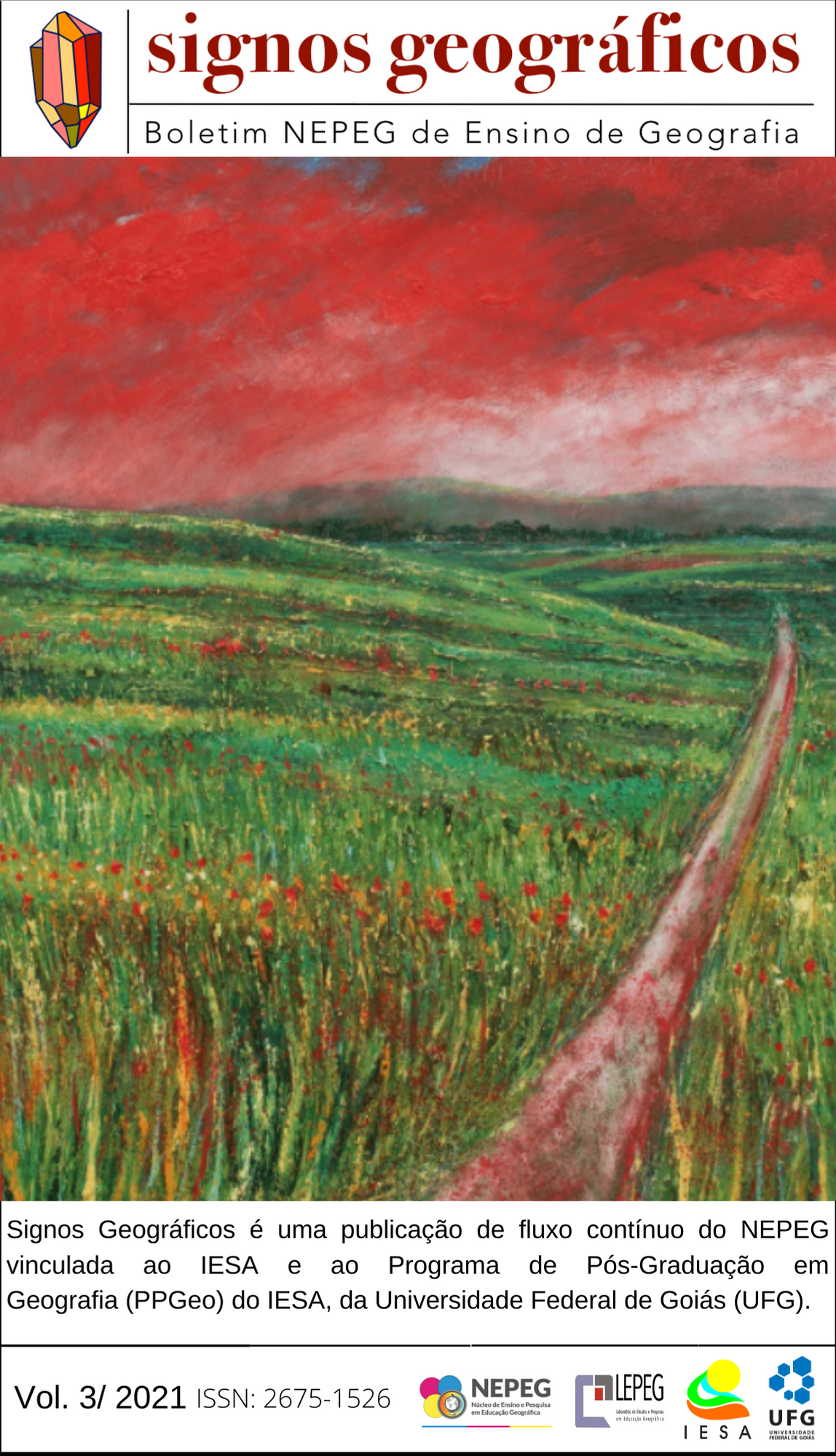PENSAR AS POLÍTICAS DE CURRÍCULO: IMPRESSÕES NO DEBATE SOBRE RACIOCÍNIO GEOGRÁFICO
Mots-clés :
políticas de currículo, raciocínio geográfico, Base Nacional Comum Curricular (BNCC), Educação Básica, desconstruçãoRésumé
Neste artigo discuto a ideia de raciocínio geográfico, que ganhou maior circulação no campo da educação geográfica com a proposição da Base Nacional Comum Curricular (BNCC). Focalizo produções voltadas ao tema buscando compreender sentidos que são postos em circulação nas políticas de currículo para Geografia. Abordo tais produções a partir do diálogo com autoras do campo do currículo, como Lopes e Macedo, bem como a partir da incorporação do pensamento desconstrucionista, de Derrida, e da teoria do discurso, de Laclau. Penso a política de currículo como uma textualização mais ampla e incontrolável, irrestrita a documentos ou legislações, estruturas ou essências. Nesse sentido, pondero que as produções intelectuais voltadas ao tema do raciocínio geográfico não só tendem a influenciar, como constituem parte da produção curricular, podendo ser interpretadas como momentos de uma política mais ampla. Durante a abordagem ao material empírico aponto sentidos normativos nas propostas à escola, que podem ser interpretados como forma de combatê-la ou limitá-la como contexto de produção cultural, além de constituir restrições a formas plurais de raciocinar em Geografia. Defendo, conclusivamente, ser potente a ampliação do olhar sobre a Geografia que acontece na escola como um nome por meio do qual são negociados sentidos de ciência, do cotidiano, das experiências, das emoções e do imprevisível. Argumento que tal ampliação possibilita pensarmos na proposição de políticas públicas de currículo com foco na valorização de escolas, de docentes e comunidades, de maneira que definam suas propostas curriculares a partir dos desafios e questões com que lidam cotidianamente.








